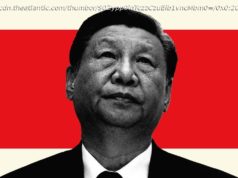Like it or not, the pace of integration is getting faster. Perhaps this is the ‘rainbow after the storm’ that Beijing’s top man in Hong Kong recently trumpeted
Beijing was once willing to wait half a century before fully integrating Hong Kong with the rest of the country. Now, that time frame is clearly off the table. Patience is not among President Xi Jinping’s personal traits.
The integration initiatives range from the beneficial to the draconian. A Beijing plan to give Hongkongers the same rights as Chinese citizens to study, live and work on the mainland may turn out to be far-reaching, though details such as taxes and residency rights have yet to be worked out. Given the rapid growth in the hi-tech and the high-value supply chain sectors on the mainland, many young people in Hong Kong will have better career prospects north of the border.
Work, study and play: will Hong Kong residents be tempted by equal rights in mainland China?
In terms of national policy and economic development, Hong Kong is increasingly cited as an integral part by the central government. Chief Executive Carrie Lam Cheng Yuet-ngor has just concluded a trip to Beijing where she met senior officials from 16 ministries and state organisations, including the People’s Bank of China and financial regulators, as well as foreign minister Wang Yi.
The city is expected to play a formal and constructive role in the “Belt and Road Initiative” global trade development plan and in the development of the “Greater Bay Area” scheme to integrate Hong Kong with southern China.
The opposition has made a big fuss about allowing mainland customs and immigration officers to operate inside the future high-speed rail terminus in West Kowloon.
But the real significance of the rail link to Guangzhou, just like the Stock and Bond Connect schemes that link Hong Kong and mainland capital markets, is the building of physical infrastructure that will shrink the mental and physical distances that have separated Hongkongers from mainlanders.
Beijing plan to give Hongkongers based on mainland same rights there raises questions
Meanwhile, officials on both sides of the border are pushing for mandatory national education. It’s not to “brainwash” our children, as the opposition has claimed, but to spread the Chinese world view and values, something which every country and its education system have done and have the right to do.
When the history of Hong Kong is written, the Occupy protests and Mong Kok riot are likely to be regarded as the peak of local opposition to the mainland takeover. After those events, the opposition became demoralised, and splintered into more radical but ineffective groupings with no coherent ideology other than being anti-China.
Perhaps this is what Zhang Xiaoming, director of Beijing’s liaison office in Hong Kong, really meant by “a rainbow after the storm”. Like it or not, Hong Kong is fast becoming “just another mainland city”.






